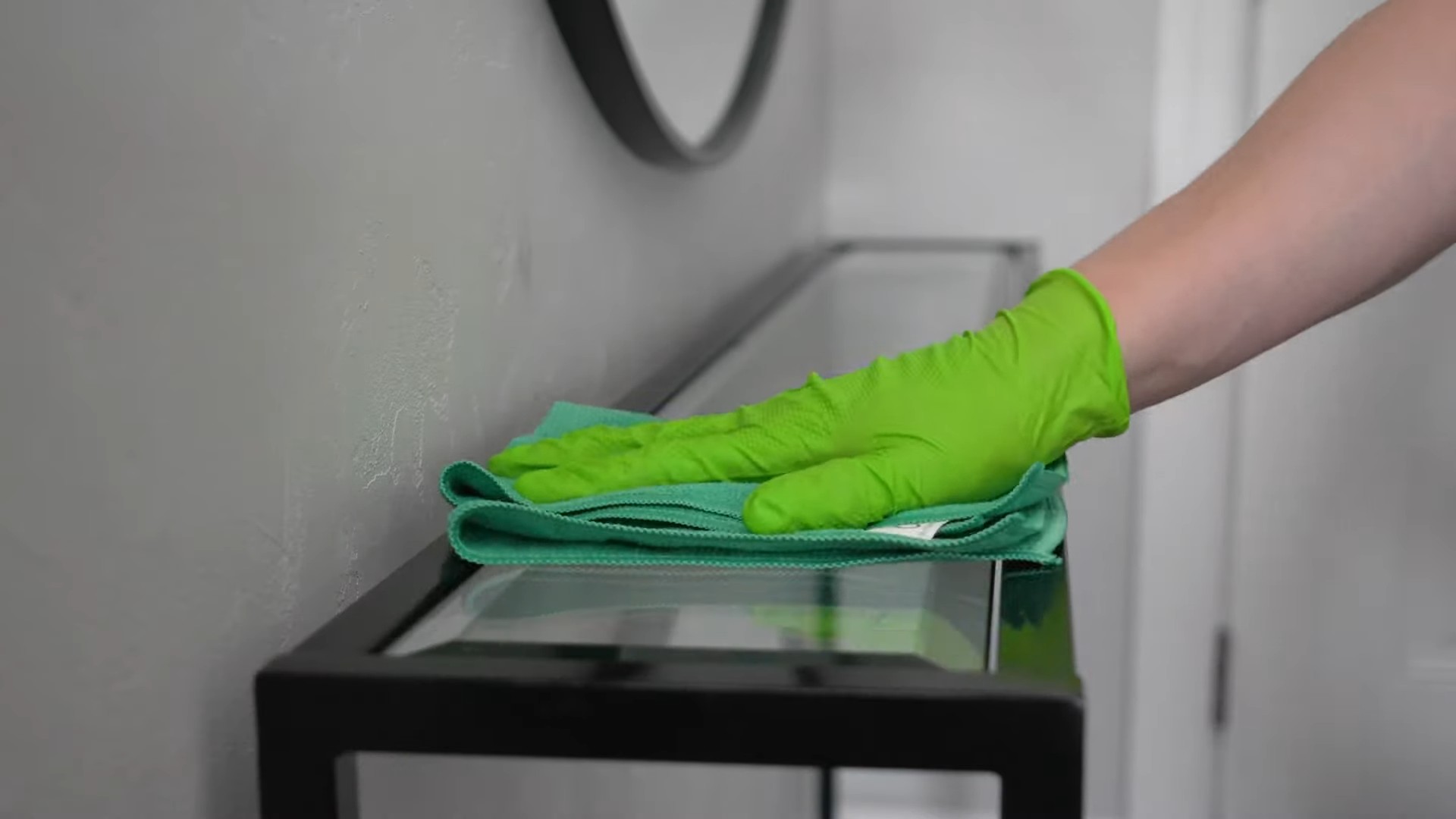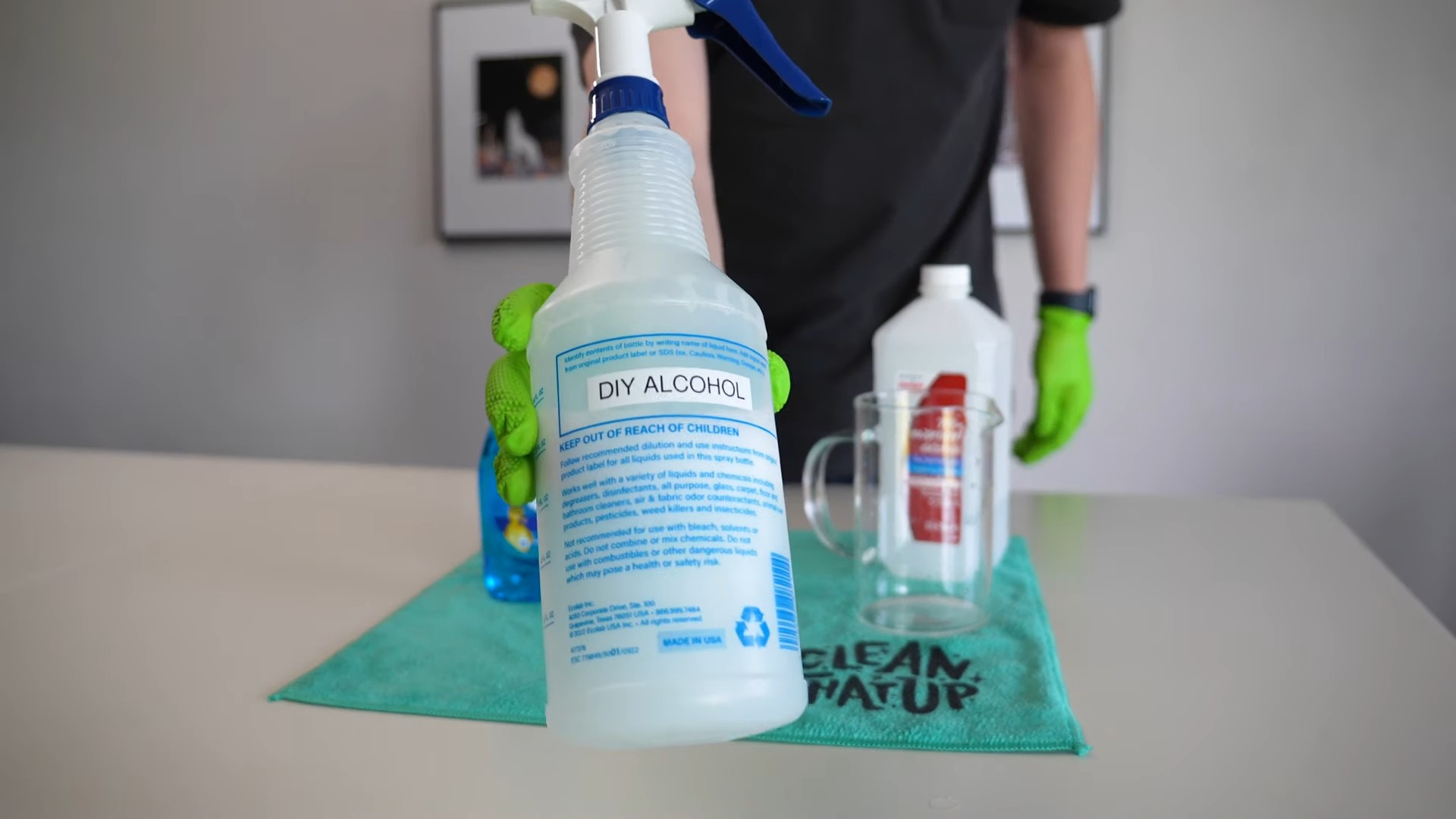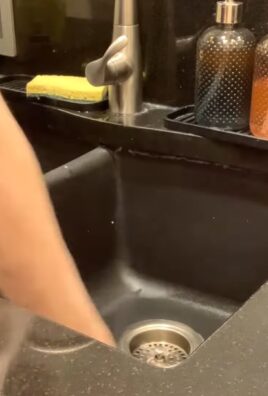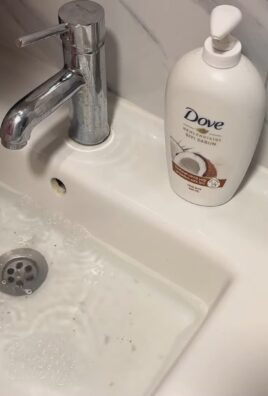Alcohol Based Cleaners DIY: Unlock the secret to a sparkling clean home with the power of DIY! Are you tired of spending a fortune on commercial cleaners filled with harsh chemicals? I know I was! That’s why I dove headfirst into the world of homemade solutions, and let me tell you, the results are amazing.
The use of alcohol as a cleaning agent isn’t new. In fact, throughout history, various cultures have utilized naturally occurring alcohols, derived from fermented fruits and grains, for their disinfecting properties. Think of ancient civilizations using diluted wine to sanitize surfaces – a testament to the enduring effectiveness of alcohol’s cleaning power.
But why should you embrace alcohol based cleaners DIY today? Simple: it’s cost-effective, eco-friendly, and incredibly versatile. With just a few readily available ingredients, you can create powerful cleaners for everything from windows and mirrors to countertops and even electronics. Plus, you’ll know exactly what’s going into your cleaning solutions, avoiding potentially harmful chemicals that can irritate your skin and pollute your home. Ready to ditch the store-bought stuff and create your own effective and safe cleaning arsenal? Let’s get started!

DIY Alcohol-Based Cleaners: Your Guide to Sparkling Clean Without the Harsh Chemicals
Hey there, fellow DIY enthusiasts! I’m so excited to share my favorite recipes for alcohol-based cleaners. I’ve been making my own cleaning products for years, and I’ve found that alcohol is a fantastic ingredient for cutting through grease, disinfecting surfaces, and leaving everything sparkling clean. Plus, it’s a much more eco-friendly and budget-friendly option than many store-bought cleaners. So, let’s dive in!
Why Alcohol?
Before we get started, let’s talk about why alcohol is such a great cleaning agent.
* Disinfectant Powerhouse: Alcohol is a natural disinfectant, effective against many common household germs and bacteria. It works by denaturing the proteins and lipids that make up these microorganisms, essentially killing them.
* Grease Cutter Extraordinaire: Alcohol is a solvent, meaning it can dissolve grease, grime, and other oily residues. This makes it perfect for cleaning kitchen surfaces, stovetops, and even greasy fingerprints.
* Quick Drying: Alcohol evaporates quickly, which means no streaks or water spots left behind. This is especially important for cleaning glass and mirrors.
* Versatile: You can use alcohol in a variety of cleaning solutions, from all-purpose cleaners to glass cleaners to disinfectant sprays.
* Relatively Safe: When used properly and diluted, alcohol is a safer alternative to many harsh chemicals found in commercial cleaners.
Choosing Your Alcohol: Isopropyl vs. Ethanol
There are two main types of alcohol you can use for cleaning: isopropyl alcohol (also known as rubbing alcohol) and ethanol (also known as ethyl alcohol or grain alcohol).
* Isopropyl Alcohol (Rubbing Alcohol): This is the most common type of alcohol used for cleaning. You can find it in most drugstores and supermarkets in concentrations ranging from 70% to 99%. I usually opt for 70% isopropyl alcohol because it’s more effective at disinfecting than higher concentrations. The water content helps the alcohol penetrate cell walls more effectively.
* Ethanol (Ethyl Alcohol or Grain Alcohol): This is a more expensive option, but it’s also a more environmentally friendly one. Ethanol is derived from plant sources, while isopropyl alcohol is typically derived from petroleum. If you’re concerned about sustainability, ethanol is a great choice. Just make sure it’s denatured alcohol, which means it’s been treated to make it undrinkable.
Important Safety Note: Always handle alcohol with care. It’s flammable, so keep it away from open flames and heat sources. Also, avoid inhaling alcohol vapors and use it in a well-ventilated area. Never mix alcohol with bleach, as this can create toxic fumes.
Essential Supplies You’ll Need
Before we start mixing up our cleaners, let’s gather our supplies. Here’s what I recommend:
* Alcohol (70% or 99% Isopropyl or Denatured Ethanol): Choose the type and concentration that best suits your needs and budget.
* Distilled Water: Tap water can contain minerals and impurities that can leave streaks or residue. Distilled water is the purest option.
* Spray Bottles: I like to have a variety of spray bottles on hand for different cleaning solutions. Make sure they’re clean and labeled clearly.
* Essential Oils (Optional): Essential oils can add a pleasant scent and even boost the cleaning power of your solutions. Lavender, tea tree, lemon, and eucalyptus are all great choices.
* Measuring Cups and Spoons: For accurate measurements.
* Funnel: To easily pour liquids into spray bottles.
* Microfiber Cloths: These are great for cleaning surfaces without leaving streaks or lint.
* Gloves (Optional): If you have sensitive skin, you may want to wear gloves when handling alcohol.
DIY Alcohol-Based Cleaner Recipes
Okay, let’s get to the fun part – making our own cleaners! I’m going to share a few of my favorite recipes, starting with an all-purpose cleaner.
1. All-Purpose Alcohol Cleaner
This cleaner is perfect for wiping down countertops, sinks, appliances, and other surfaces.
Ingredients:
* 1 cup 70% isopropyl alcohol (or equivalent amount of 99% diluted to 70%)
* 1 cup distilled water
* 10-15 drops of your favorite essential oil (optional)
Instructions:
1. Combine Ingredients: In a spray bottle, combine the alcohol, distilled water, and essential oils (if using).
2. Shake Well: Secure the lid and shake the bottle well to mix the ingredients thoroughly.
3. Label: Label the bottle clearly as “All-Purpose Alcohol Cleaner.”
4. Use: Spray the cleaner onto the surface you want to clean and wipe it down with a microfiber cloth.
2. Glass and Mirror Cleaner
Say goodbye to streaks and smudges with this simple glass cleaner.
Ingredients:
* 1/2 cup 70% isopropyl alcohol (or equivalent amount of 99% diluted to 70%)
* 1 1/2 cups distilled water
* 1 tablespoon white vinegar (optional, for extra cleaning power)
Instructions:
1. Combine Ingredients: In a spray bottle, combine the alcohol, distilled water, and white vinegar (if using).
2. Shake Well: Secure the lid and shake the bottle well to mix the ingredients thoroughly.
3. Label: Label the bottle clearly as “Glass and Mirror Cleaner.”
4. Use: Spray the cleaner onto the glass or mirror and wipe it down with a clean microfiber cloth. For best results, use a dry cloth to buff the surface after wiping.
3. Disinfectant Spray
This spray is great for disinfecting surfaces like doorknobs, light switches, and toilet seats.
Ingredients:
* 2/3 cup 99% isopropyl alcohol (or equivalent amount of 70% increased to achieve higher concentration)
* 1/3 cup distilled water
* 5-10 drops of tea tree essential oil (optional, for added antibacterial properties)
Instructions:
1. Combine Ingredients: In a spray bottle, combine the alcohol, distilled water, and tea tree essential oil (if using).
2. Shake Well: Secure the lid and shake the bottle well to mix the ingredients thoroughly.
3. Label: Label the bottle clearly as “Disinfectant Spray.”
4. Use: Spray the cleaner onto the surface you want to disinfect and let it sit for at least 30 seconds before wiping it down with a clean cloth.
4. Electronics Cleaner
This gentle cleaner is safe for cleaning screens, keyboards, and other electronic devices.
Important Note: Always unplug electronic devices before cleaning them. Never spray cleaner directly onto the device. Instead, spray it onto a microfiber cloth and then wipe the device.
Ingredients:
* 1/2 cup 70% isopropyl alcohol (or equivalent amount of 99% diluted to 70%)
* 1/2 cup distilled water
Instructions:
1. Combine Ingredients: In a spray bottle, combine the alcohol and distilled water.
2. Shake Well: Secure the lid and shake the bottle well to mix the ingredients thoroughly.
3. Label: Label the bottle clearly as “Electronics Cleaner.”
4. Use: Lightly spray the cleaner onto a clean microfiber cloth and gently wipe the surface of the electronic device. Avoid getting any liquid into openings or ports.
5. Hand Sanitizer
While not strictly a cleaner for surfaces, this is a great way to use alcohol to keep your hands clean.
Ingredients:
* 2/3 cup 99% isopropyl alcohol (or equivalent amount of 70% increased to achieve higher concentration)
* 1/3 cup aloe vera gel (for moisturizing)
* 5-10 drops of essential oil (optional, for scent)
Instructions:
1. Combine Ingredients: In a bowl, combine the alcohol, aloe vera gel, and essential oil (if using).
2. Mix Well: Stir the ingredients together until they are thoroughly combined.
3. Transfer to Bottle: Use a funnel to pour the mixture into a clean, empty bottle with a pump or squeeze top.
4. Label: Label the bottle clearly as “Hand Sanitizer.”
5. Use: Apply a small amount of hand sanitizer to your hands and rub them together until dry.
Tips for Success
Here are a few extra tips to help you get the most out of your DIY alcohol-based cleaners:
* Always Test in an Inconspicuous Area: Before using any new cleaner on a large surface, test it in a small, hidden area to make sure it doesn’t damage or discolor the material.
* Use Proper Ventilation: When working with alcohol, make sure you

Conclusion
So, there you have it! Ditching those expensive, chemical-laden store-bought cleaners and embracing the power of DIY alcohol based cleaners is not just a trend; it’s a smart, economical, and environmentally conscious choice. We’ve walked you through the simplicity of creating your own effective cleaning solutions using readily available ingredients, proving that a sparkling clean home doesn’t have to come at the expense of your wallet or the planet.
But why is this DIY trick a must-try? Beyond the cost savings, you gain complete control over the ingredients. No more deciphering confusing labels filled with unpronounceable chemicals. You know exactly what’s going into your cleaner, allowing you to tailor it to your specific needs and sensitivities. This is particularly beneficial for those with allergies or sensitivities to harsh chemicals commonly found in commercial cleaners.
Furthermore, the versatility of alcohol based cleaners is truly remarkable. From disinfecting countertops and sanitizing bathroom surfaces to streak-free window cleaning and even refreshing fabrics, the possibilities are endless. And don’t think you’re limited to just one formula! Feel free to experiment with different essential oils to create custom scents that uplift your mood while you clean. A few drops of lavender oil can transform your bathroom cleaning routine into a spa-like experience, while lemon or orange oil can add a zesty freshness to your kitchen.
Consider these variations to further personalize your DIY alcohol based cleaners:
* **For a stronger disinfectant:** Increase the concentration of isopropyl alcohol to 70% or higher. Remember to always test on an inconspicuous area first, especially on delicate surfaces.
* **For a gentle all-purpose cleaner:** Combine equal parts isopropyl alcohol, distilled water, and white vinegar. This blend is excellent for cleaning hard surfaces like tile, linoleum, and sealed wood.
* **For a glass cleaner:** Mix isopropyl alcohol with distilled water and a splash of white vinegar. The vinegar helps to cut through grease and grime, leaving your windows and mirrors sparkling clean.
* **For a fabric refresher:** Dilute isopropyl alcohol with distilled water and add a few drops of your favorite essential oil. Lightly mist fabrics to eliminate odors and freshen them up.
We firmly believe that once you experience the effectiveness and simplicity of DIY alcohol based cleaners, you’ll never go back to store-bought alternatives. It’s a win-win situation: a cleaner home, a healthier environment, and more money in your pocket.
So, what are you waiting for? Gather your ingredients, follow our simple instructions, and prepare to be amazed by the cleaning power of DIY. We’re confident that you’ll love the results.
We encourage you to try these DIY alcohol based cleaners and share your experiences with us! Let us know which variations you tried, what scents you created, and how they worked for you. Your feedback is invaluable and helps us to continue providing you with the best DIY cleaning solutions. Share your tips, tricks, and photos on our social media channels using #DIYCleaners and #AlcoholBasedCleaners. Let’s build a community of eco-conscious cleaners together!
Frequently Asked Questions (FAQ)
What type of alcohol should I use for my DIY cleaner?
Isopropyl alcohol (also known as rubbing alcohol) is the most common and readily available type of alcohol for DIY cleaning solutions. Look for a concentration of 70% or higher for effective disinfecting. Ethanol (grain alcohol) can also be used, but it’s often more expensive and harder to find in high concentrations. Avoid using denatured alcohol, as it contains additives that can be harmful or leave a residue.
Is it safe to use alcohol based cleaners on all surfaces?
While alcohol based cleaners are generally safe for most hard, non-porous surfaces, it’s always a good idea to test them on an inconspicuous area first, especially on delicate materials like painted surfaces, varnished wood, or certain plastics. Alcohol can potentially damage or discolor some surfaces, so a spot test will help you avoid any unwanted surprises. Avoid using alcohol based cleaners on natural stone surfaces like granite or marble, as they can etch the surface.
Can I use essential oils in my alcohol based cleaner?
Yes, you can definitely add essential oils to your DIY alcohol based cleaner! Essential oils not only add a pleasant scent but also offer additional cleaning and disinfecting properties. Some popular choices include lavender, lemon, tea tree, eucalyptus, and peppermint. Start with a few drops and adjust to your preference. Be sure to use pure, therapeutic-grade essential oils for the best results.
How should I store my DIY alcohol based cleaner?
Store your DIY alcohol based cleaner in a clean, labeled spray bottle. It’s important to label the bottle clearly to avoid any confusion, especially if you have children or pets. Keep the bottle out of reach of children and pets, and store it in a cool, dry place away from direct sunlight and heat. Avoid storing the cleaner in metal containers, as the alcohol can react with the metal.
How long will my DIY alcohol based cleaner last?
DIY alcohol based cleaners generally have a long shelf life, especially if stored properly. The alcohol acts as a preservative, preventing the growth of bacteria and mold. However, the scent of essential oils may fade over time. For best results, use your DIY cleaner within 6-12 months. If you notice any changes in color, odor, or consistency, it’s best to discard the cleaner and make a fresh batch.
Are alcohol based cleaners effective against viruses and bacteria?
Yes, alcohol based cleaners are effective against a wide range of viruses and bacteria, including common household germs. A concentration of 70% isopropyl alcohol or higher is generally recommended for effective disinfecting. When using an alcohol based cleaner to disinfect, make sure to apply it to the surface and allow it to remain wet for at least 30 seconds to ensure proper contact time.
Can I use alcohol based cleaners on electronics?
While alcohol based cleaners can be used on some electronics, it’s important to proceed with caution. Always unplug the device before cleaning and avoid spraying the cleaner directly onto the screen or into any openings. Instead, dampen a microfiber cloth with the alcohol based cleaner and gently wipe the surface. Avoid using excessive amounts of liquid, as it can damage the internal components. Check the manufacturer’s instructions for specific cleaning recommendations for your device.
What are the benefits of using DIY alcohol based cleaners compared to store-bought cleaners?
There are several benefits to using DIY alcohol based cleaners compared to store-bought cleaners:
* **Cost-effective:** DIY cleaners are significantly cheaper to make than store-bought cleaners.
* **Environmentally friendly:** DIY cleaners reduce your reliance on plastic packaging and harsh chemicals that can harm the environment.
* **Customizable:** You can tailor the ingredients and scents to your specific needs and preferences.
* **Safer for sensitive individuals:** You have complete control over the ingredients, making it easier to avoid allergens and irritants.
* **Effective cleaning:** Alcohol based cleaners are effective at disinfecting and cleaning a variety of surfaces.
What safety precautions should I take when making and using alcohol based cleaners?
When making and using alcohol based cleaners, it’s important to take the following safety precautions:
* **Work in a well-ventilated area:** Alcohol fumes can be irritating, so ensure proper ventilation.
* **Avoid contact with eyes and skin:** Wear gloves and eye protection to prevent irritation.
* **Keep away from heat and flames:** Alcohol is flammable, so keep it away from heat sources and open flames.
* **Do not ingest:** Alcohol is toxic if ingested. Keep out of reach of children and pets.
* **Test on an inconspicuous area first:** Before cleaning a large surface, test the cleaner on a small, hidden area to ensure it doesn’t damage the material.




Leave a Comment